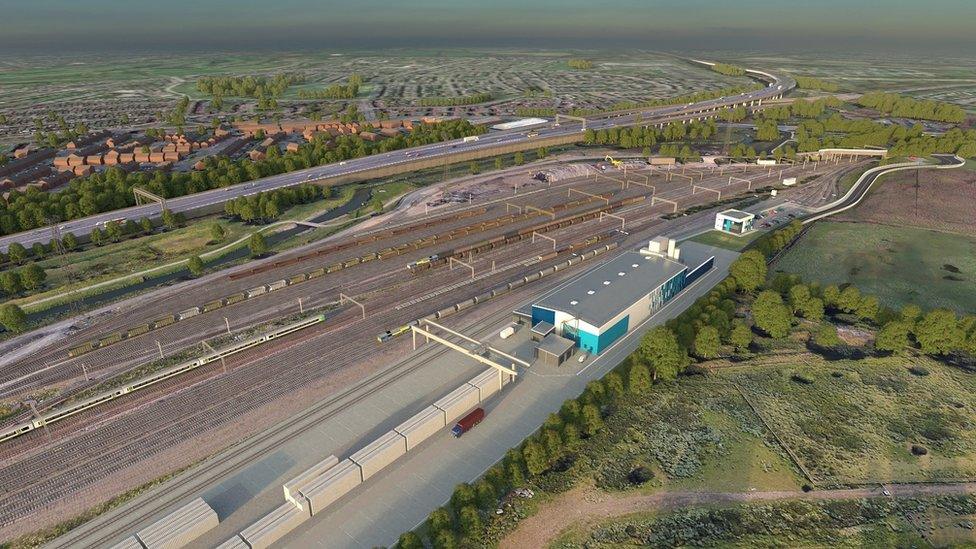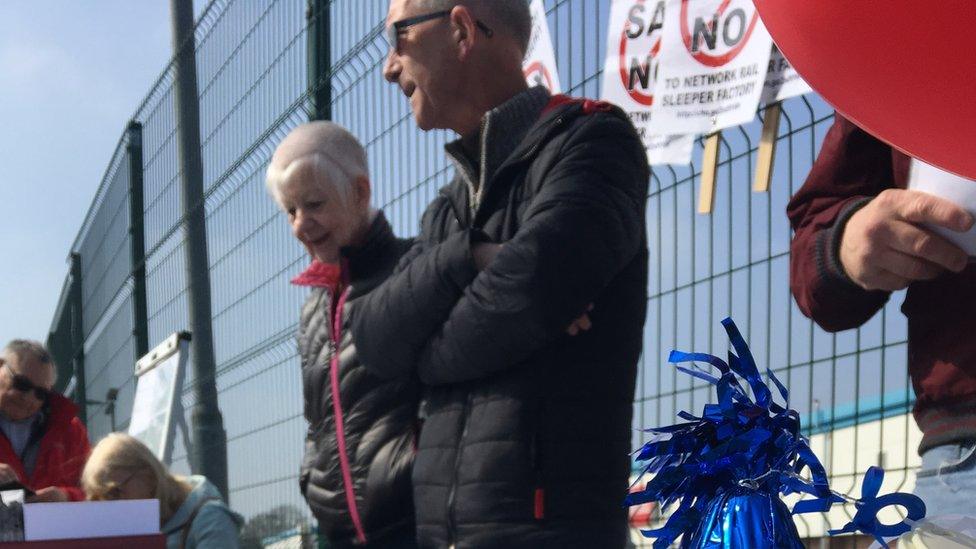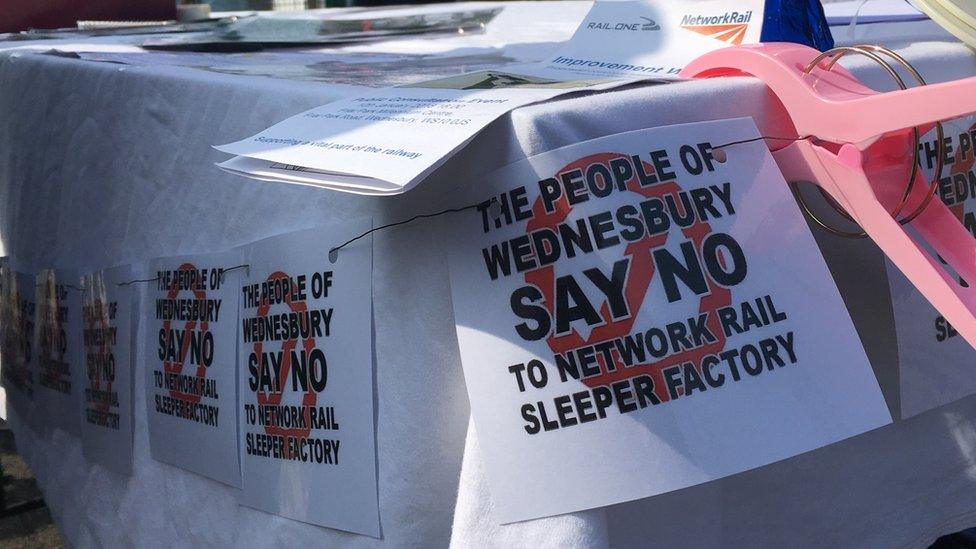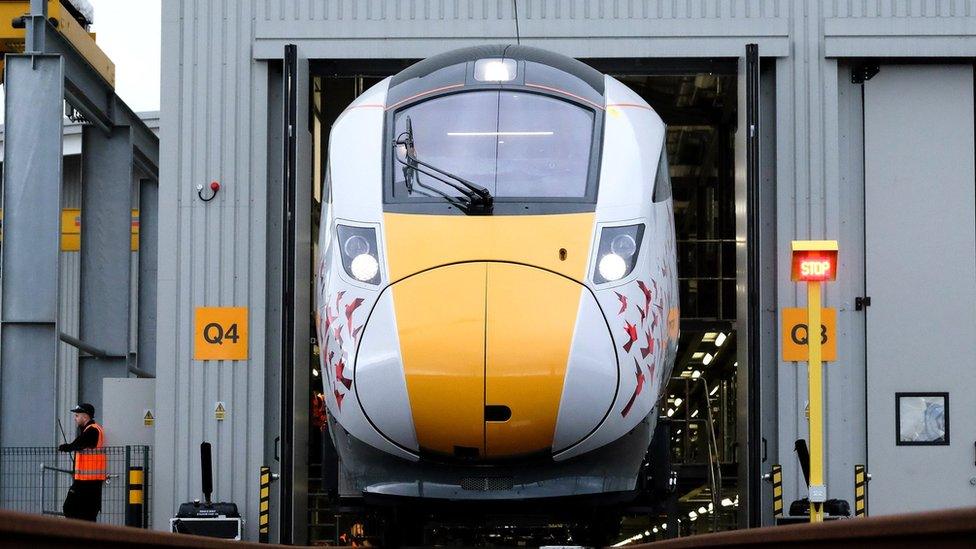Environmental fears stop 'urgent' Bescot rail project
- Published

An artist's impression of how the site could look was part of the plans being debated
Plans for a "nationally important" rail project have been rejected because of environmental concerns.
Network Rail wanted to build a sleeper manufacturing base in Bescot, Walsall, due to its Washwood Heath site closing to make way for HS2.
But campaigners raised several issues, including fears over air pollution.
Dismissing the plans, Sandwell councillors said the firm had failed to show how local people and the environment would be protected.

Campaigners have fought the plans since they were submitted
Campaigner Wayne Trinder said he was pleased the factory, which would have produced 600,000 concrete units per year, would not now be built.
"I feel absolutely ecstatic, I feel that I can come off the gas a bit after two years of hard work. I can now enjoy a Christmas with my family," he said.
Network Rail had said the plans would secure 100 jobs and were integral to the on-going upgrade of the rail network.
Currently, sleepers come from Doncaster and Washwood Heath but with that site closing, the firm "must urgently establish an alternative facility to make up for the shortfall in production capacity".

Campaigners claimed the plant would add to air pollution in an area already badly effected by the nearby M6
But planning officers at a specially held planning committee meeting on Tuesday, said the company had failed to show how it would protect the area from water run off and possible land contamination.

Analysis: Rob Mayor; BBC Sunday Politics and BBC WM Black Country Political Reporter
This is victory for campaigners who've spent the last two years fighting Network Rail all the way.
They claim the sleeper factory would plague their homes and the 21 schools within one mile of the site with dust and pollution.
That's rejected by Network Rail who say the factory is 'nationally important' after a similar facility in Birmingham was closed to make way for HS2.
Sandwell Council's planning committee unanimously ruled that reassurances over the environmental impact were inadequate, a decision met with applause from dozens gathered in the public gallery.
But it's not the end of the line for this story.
Network Rail say they were not given enough time to provide more information about environmental safeguards, and have hinted they may appeal to the governments planning inspectorate, a process which could take several months or more.

Explaining the factory was of national importance to the rail infrastructure, Anthony Morley from Network Rail said the council had only asked for additional evidence after it had published its recommendation to reject the scheme.
A spokesman for the firm said it was "disappointed" at the decision.
"The production of railway sleepers is key to us providing a safe and reliable railway for the millions of passengers who travel by train every day and we will now consider all options available to us."

Follow BBC West Midlands on Facebook, external, on Twitter, external, and sign up for local news updates direct to your phone., external
- Published12 November 2019
